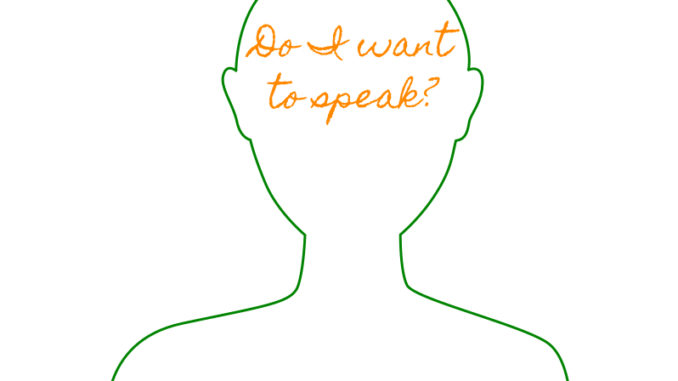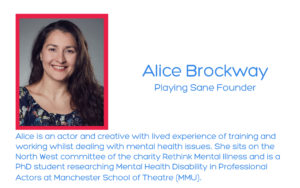
 It’s Mental Health Awareness Week and there are campaigns all over the place. It’s fantastic that so many people are taking mental health seriously and talking about it openly. Without a doubt we need to talk more and more openly about mental health issues to reduce stigma and to improve understanding.
It’s Mental Health Awareness Week and there are campaigns all over the place. It’s fantastic that so many people are taking mental health seriously and talking about it openly. Without a doubt we need to talk more and more openly about mental health issues to reduce stigma and to improve understanding.
But there can be a downside to all this.
There are plenty of people dealing with mental health difficulties who are not in a position to talk about their experiences for all sorts of reasons: maybe it’s a first episode and they don’t really understand what they’re dealing with, maybe they’ve experienced discrimination or abuse in the past and are now far more cautious, maybe they just don’t feel it’s anyone’s business. There are plenty of valid reasons why a person might not want to be shouting about their difficulties.
I’m writing this post to tell you that it’s fine to choose not to talk.
Of course the more we talk about mental health the more normal it will become, and we do need people to use their voices when they can. It is an open secret for actors that speaking about your mental health difficulties runs the risk of damaging your career and that just isn’t OK. Being pressured into NOT speaking denies people support and forces them to deal with problems alone when they would be far easier dealt with by a group or company. That has to change.
But all these campaigns can make you feel like you’re letting the side down by keeping quiet and that’s really not what it’s about. You are not obliged to share your story with anyone. It is incredibly important that people dealing with mental health problems feel in control of who does and doesn’t know what’s going on for them. So many of us feel out of control because of our difficulties and this may be the one thing we CAN control. That has to be respected.
Asking for help or talking to a therapist or doctor is not the same as posting on social media to raise awareness. It’s vital that you get the support you need but making these things public knowledge can be terrifying and may simply not be the right thing for you. And that’s OK.
Let’s say it again
You are not obliged to share your story with anyone.
You can support those of us who are ‘out’ about our mental health without telling anyone about your own experiences. You can support change without announcing your medication to the world. For actors in particular the stigma around mental illness still seems to have career consequences. While that is not acceptable and needs to change, if you’re not ready to wade in on that debate you don’t have to.
Whether you want to tell your story or not there are loads of things you can do to help make change happen. You don’t have to make yourself feel exposed or unsafe to do it. It can be brave and empowering to speak up but only if you’re ready to do so.
There are people throughout Theatre, Film and TV working for change around mental health. As time goes on it WILL become more and more acceptable to speak but you should never be forced or pressured into it.
This Mental Health Awareness Week, if you’re not ready to speak, just take a look at what’s going on.
You’re not on your own.

Leave a Reply